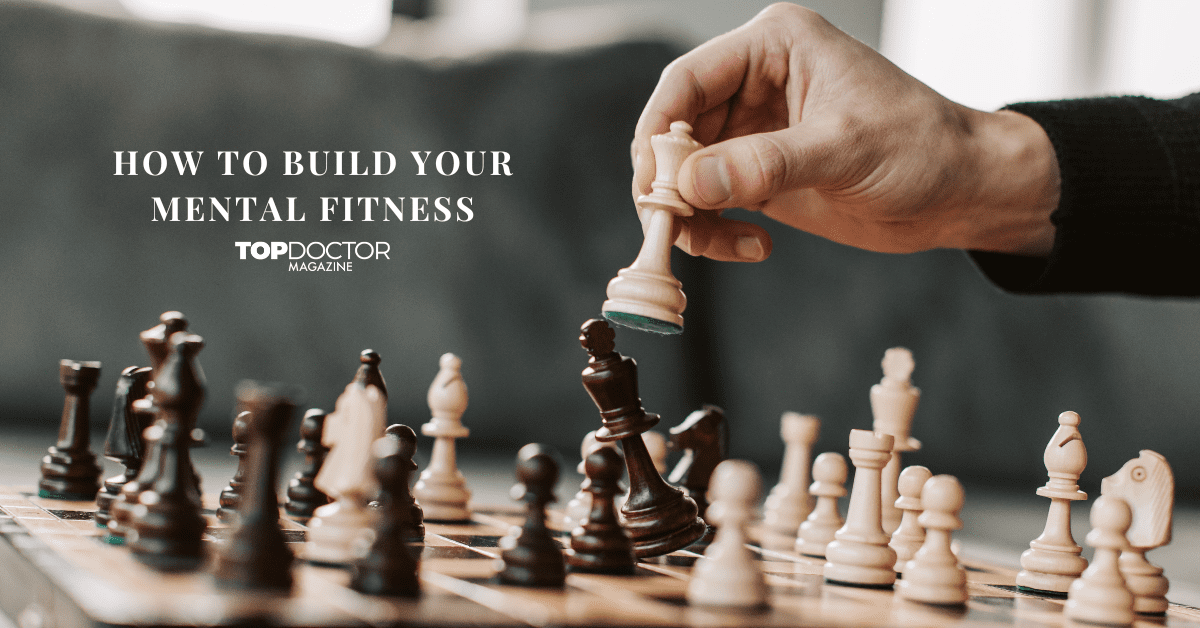Most people have come across Sudoku, a crossword or, more recently, the famed Wordle — the puzzle that captivated the world during the pandemic years and is still widely played. But these head-scratchers are not only for enjoyment and competing with one’s friends. They serve a much greater purpose than people often consider: they strengthen and speed up the brain.
Keeping physically active and fit brings a host of health benefits, but there are other forms of fitness one should focus on. Exercising the brain is the best way to harness more mental capacity and prevent disease.
What Does Mental Fitness Mean?
Mental fitness is the ability to maintain a healthy mind while handling daily life’s challenges. It is an umbrella term that involves having a positive outlook on life, managing emotions, thinking logically and making sound choices. A mentally fit person can adapt to change, learn new skills and build and maintain healthy relationships.
Others perceive mental fitness as the brain’s ability to adapt to new experiences and information through neuroplasticity. Neuroplasticity is essential as it allows the brain to modify its behavior in response to a stimulus.
Both these interpretations are valuable and promote holistic wellness. Mental fitness is essential for overall health and can be improved through regular exercise, proper nutrition, memory games and learning new skills.
What Are the Benefits of Mental Fitness?
Being mentally fit can help you manage stress better, stay focused and be productive. In addition to assisting people in staying sharp and managing daily tasks, being mentally fit can also help prevent age-related cognitive decline and the development of conditions such as dementia and Alzheimer’s disease. By engaging in activities that challenge the mind and maintaining healthy habits, you can support your brain’s neuroplasticity and maintain good mental fitness over time.
Mental fitness, or cognitive fitness, includes:
- Thinking clearly;
- Retaining new information and making accurate decisions;
- Staying sharp and alert.
The awareness surrounding brain training is increasing. The FDA has approved brain training games for children with ADHD, and the NHI is funding a 30,000-participant memory training study. Reading, exercise and mindfulness have been shown to stave off mental deterioration. The potential benefits include:
- Fluid intelligence (i.e., the mind’s ability to innovate and solve new problems);
- Increased brain vitality (i.e., the retention and creation of brain cells and pathways);
- Increased attention span and task-switching ability.
It is possible to build mental toughness in a variety of ways, in turn benefiting one’s overall health and cognitive ability long-term.
How To Improve Your Mental Fitness
There are many different ways to improve mental fitness:
- Physical exercise can help improve blood flow to the brain, supporting cognitive function.
- A healthy diet can provide the brain’s essential nutrients in order to function correctly.
- Engaging in activities that challenge and stimulate the brain, such as puzzles and brainteasers, can help to improve cognitive function and maintain mental fitness.
- Effectively managing stress can help prevent mental health issues and maintain good cognitive function.
- Maintaining strong social connections and relationships may prevent feelings of loneliness, isolation and poor self-worth, which can negatively affect mental health.
How To Build Your Mental Muscle
Knowing where to start when considering how to develop your mental muscle can take time and effort. There are some engaging brain exercises that you can try to improve your mental fitness and keep your mind sharp for years to come. Puzzles, meditation and memory games will indeed challenge and stimulate your brain.
- Read diverse forms of literature (social media captions don’t count);
- Practice gratitude and positive self-talk;
- Begin a meditation and mindfulness practice;
- Eat wholesome, healthy meals.
Exercises for Mental Fitness
Think of these exercises as different workouts in the gym, each aimed at strengthening a different part of the brain. Puzzles and mind games benefit the brain because they improve cognitive function and promote neuroplasticity. By providing your brain with challenging and stimulating activities, you can help improve your memory, problem-solving skills and overall cognitive abilities.
This diverse set of puzzles and memory games will have a lasting impact on the neuroplasticity of your brain:
- Chess;
- Crossword puzzles;
- Memory match cards;
- Paint by numbers;
- Puzzles;
- Regular exercise such as cardio or weight training;
- Sudoku;
- Wordle.
One of the amazing things about activities that challenge the mind is that they are usually inexpensive and convenient. You can incorporate them into your daily routine without breaking the bank or blocking off a lot of time! Even just 10-15 daily minutes of one or two mental fitness tasks can significantly affect your cognitive function.
Why Mental Fitness Is Important
Engaging in activities that challenge the mind will ensure that the brain stays active. Incorporating mental fitness exercises and maintaining healthy habits can further support your brain’s neuroplasticity, which becomes increasingly important as you age.






0 Comments